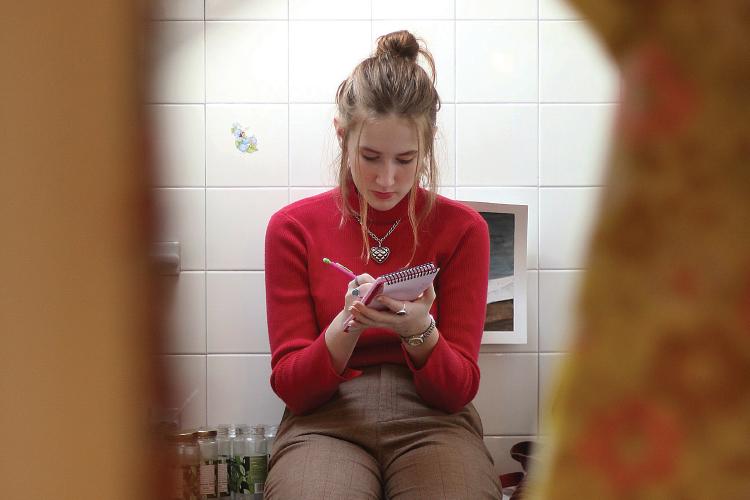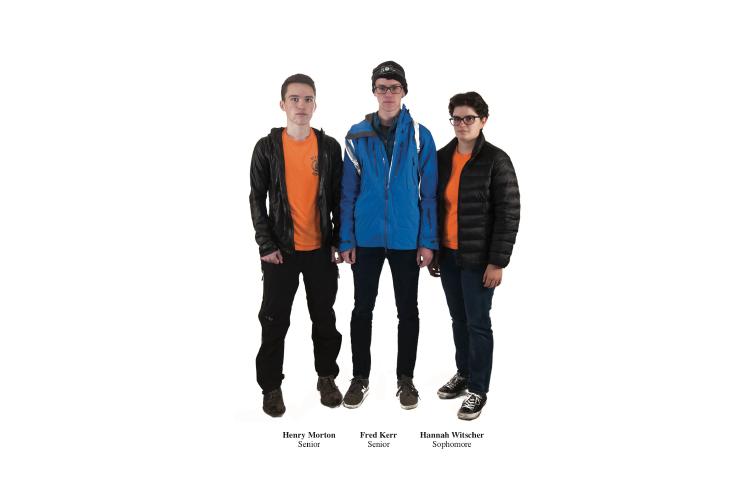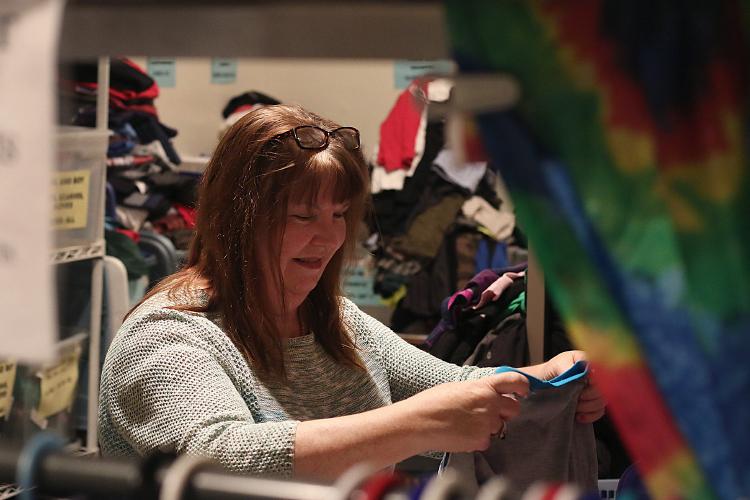My curiosity had gotten the best of me. Linking my Sarahah account to a post on my Snapchat, I gave in to the trend that I had made fun of just days earlier. I posted it on my public story — captioning the photo “SORRY” — so all my friends on Snapchat could see the link. I contemplated deleting the post, until anonymous compliments began to appear on my notification screen.
“Sarahah,” which roughly translates to “honesty” in Arabic, is an anonymous app initially created for users to send feedback to their coworkers, but has recently become popular among teenagers. Students post their URL on other social media apps, like Snapchat, to receive messages. Unsurprisingly, Sarahah has exploded in popularity at Grant.
When a message is posted on this platform, there is no way of tracing it back to the original sender. But that’s what makes the app exciting — it’s a guessing game.
At first, I didn’t see the point of it. It seemed like a waste of time to send my URL out and receive superficial comments for fun. I was annoyed at all my friends for posting the link so frequently.
But after first posting my own link, I easily became addicted to using the app. The constant flow of messages momentarily boosted my confidence. Fortunately, Sarahah was generally a positive experience for me; any questionable remarks I received were outweighed by compliments.
Though I could see the potential for it, I didn’t realize until later that the anonymous app created a platform for cyberbullying.
Angel Thomas, a junior at Grant, began using Sarahah thinking it would improve her self-confidence. “A lot of people were getting it and I thought it would be a fun thing to have.”
And it was — at first.
Recently, almost all of the messages on her Sarahah page have been accusations regarding her ex-boyfriend. “They don’t even know half the story,” says Thomas. “It’s easier to say things like that anonymously than to actually say it to someone. They knew that they were irrelevant to me and the situation, so they used an anonymous website where they knew I’d see it and where they could actually have an opinion.”
Because apps like Sarahah are anonymous, they allow users to post things that they would never say in person.
“Apps that don’t require validated identification serve as frictionless instruments for cyberbullying and other pathologies associated with social media,” says Richard Hanley, a professor at the School of Communications at Quinnipiac University. “The ephemeral nature of these apps amplifies the perspective that the damaging message won’t be permanent. The facts show otherwise … At an age when information is generally received as authentic, these posts can also damage the reputation of victims for a long time.”
Although Sarahah had a base of over 60 million users worldwide as of August, I’ve noticed that the constant screenshots of comments have become scarce when looking through my friends’ Snapchat stories. It lost the attention of the majority of Grant students almost as fast as it caught it. Though Sarahah is dying out, there is no doubt that another anonymous app will soon take its place.
Since apps like these rise and fall in popularity within months, little has been written about them.
As a result, many users remain unaware of the risks that come with using an anonymous app. Most teens create an account out of curiosity or as a confidence booster, but are unprepared for the negative comments they receive.
Last year, Grant leadership promoted a boycott of the After School app when reports of cyberbullying were made. Though this was a temporary fix to a much larger issue, the same issues have arisen with Sarahah. The issue of cyberbullying is prominent in any anonymous app, and because each app that fades out is quickly replaced with another, not much can be done to stop it.
“The nature of the app ecosystem is that apps come and go with the breeze, but there will always be anonymous apps that emerge,” says Hanley.
That’s why it’s important for students to better understand anonymous apps. Think about what you’re writing before you hit “send.” Try to use Sarahah with its original intention in mind: “Leave a constructive message.” Cyberbullying is not an easily resolved issue, especially when it’s coming from an anonymous source. But it’s easy to refrain from posting negative comments.
The only way this issue will be solved is if we as students don’t take part in it. It’s not something the administration can control — it’s up to you.
Momoko Baker is a reporter and Photo Editor for Grant Magazine.








































